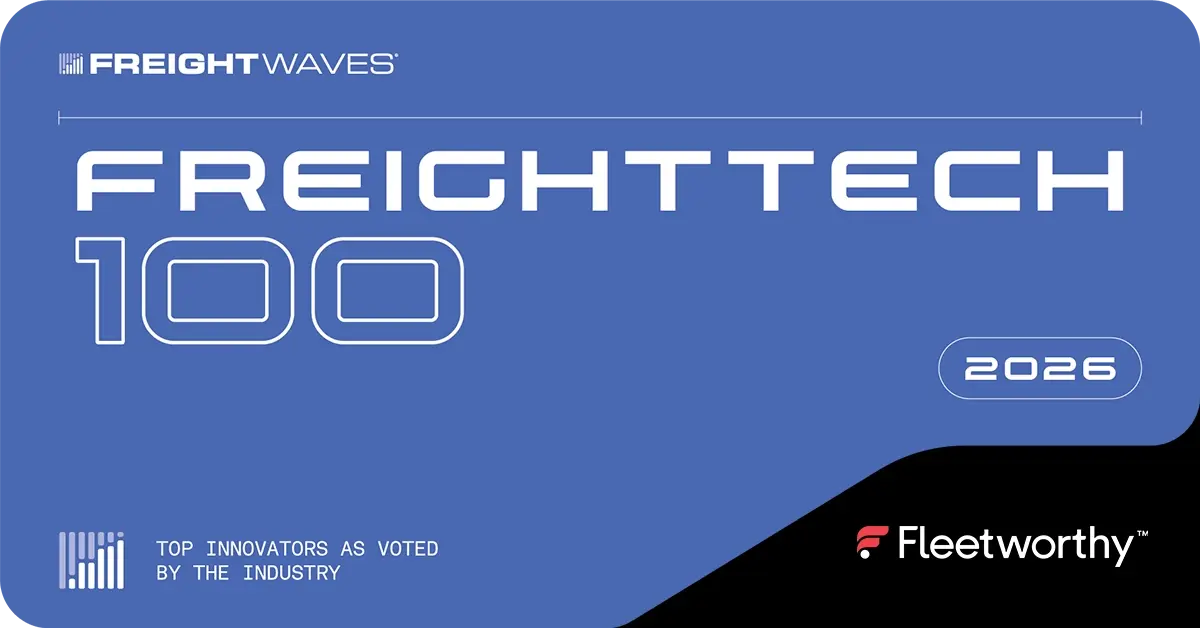Effective asset management is at the core of any successful fleet operation. For fleet managers, the challenge lies in ensuring every vehicle remains road-ready, compliant with ever-evolving regulations, and optimized for peak performance. With many fleets operating across multiple jurisdictions, asset management goes beyond simple upkeep; it becomes a strategic function essential for operational stability, regulatory adherence, and cost control.
From the foundational tasks of licensing and registration to the more complex processes of fuel tax management, permit compliance, and maintenance scheduling, asset management encompasses a wide range of responsibilities. Each of these elements plays a critical role in keeping vehicles on the road and reducing the risks of fines, breakdowns, and operational delays.
Here are the key areas for Fleet Asset Management:
Licensing and Registration in Fleet Asset Management
For any fleet operation, ensuring that every vehicle is correctly licensed and registered is a foundational responsibility that impacts both legal compliance and operational efficiency. Each vehicle must not only be legally registered but must also carry the appropriate credentials that validate its eligibility to operate on the road. These credentials include state and jurisdictional licenses, which can vary significantly depending on where the vehicle operates and the specific type of service it provides, whether that’s interstate hauling, intrastate transport, or specialized functions such as emergency response.
The complexities of licensing and registration can be challenging, especially for fleets that operate across multiple states. Each jurisdiction may have different renewal timelines, varying regulatory standards, and distinct requirements for documentation. In many cases, fleet managers must navigate a mix of annual or biennial renewals and various state-specific compliance rules. Missing any of these deadlines can lead to fines, penalties, or even the grounding of vehicles, which disrupts operations and can incur unexpected costs.
Permit Management in Fleet Operations
In fleet operations, some vehicles require more than standard registration—they need special permits, especially when carrying sensitive or regulated cargo, such as hazardous materials, oversized loads, or goods that demand unique handling and routing. These specialized permits are essential for legal compliance and safety, as they address the added risks associated with these types of transports. The process for acquiring and maintaining these permits is highly regulated, often involving not only initial approvals but also specific requirements such as designated routes, strict safety protocols, and additional inspections.
For fleet managers, keeping track of these permits is an ongoing responsibility, as each type of load and territory may come with distinct regulatory demands. Permits may be required for specific vehicle dimensions, weight classes, or cargo types, with restrictions and guidelines that vary from state to state. Additionally, some permits may be time-sensitive or route-specific, meaning they must be renewed frequently or adjusted depending on changing routes and logistics needs. For instance, a fleet moving oversized construction equipment across state lines may need multiple permits that reflect the load’s dimensions and the requirements of each jurisdiction.
Fuel Tax Management for Fleets
For fleets that operate across state lines, fuel tax management is a critical aspect of regulatory compliance and operational cost control. The International Fuel Tax Agreement (IFTA) was established to simplify the reporting of fuel taxes for interstate carriers, requiring that taxes be calculated and paid to the various jurisdictions in which each vehicle operates. Under IFTA, fleet managers must accurately report both fuel purchases and the miles traveled within each state or province. This ensures that each jurisdiction receives the proper tax based on the amount of fuel consumed within its borders.
The complexity of fuel tax management lies in the detailed record-keeping required. Vehicles in an interstate fleet may travel through numerous states within a single trip, making it essential to capture precise mileage data and fuel purchase records for each jurisdiction. This data must then be reported accurately and on time to avoid penalties and to comply with the specific requirements of each state. Any errors or lapses in record-keeping can lead to significant fines, audits, or even restrictions on fleet operations, making fuel tax management a priority for compliance-focused fleets.
To streamline this process, many fleet managers rely on automated systems that track fuel usage and mileage in real-time. These systems can capture data from electronic logging devices (ELDs) or telematics platforms, integrating mileage and fuel purchase information into centralized records. Automation not only reduces the risk of human error but also simplifies the task of generating quarterly IFTA reports, cutting down on administrative time and costs. Additionally, automated tracking helps fleet managers monitor fuel consumption patterns, identifying potential areas for fuel efficiency improvements and cost savings.
Maintenance Scheduling in Fleet Management”
For fleet operations, regular maintenance scheduling is crucial to sustaining vehicle performance, ensuring safety, and controlling long-term costs. Fleet vehicles experience continuous wear and tear from demanding routes, variable road conditions, and frequent use. When maintenance is neglected, minor issues can quickly escalate into major repairs or unexpected breakdowns, impacting fleet reliability and leading to costly disruptions. To prevent this, fleet managers need a structured maintenance program that includes both routine and preventive maintenance activities, ensuring each vehicle remains road-ready and compliant with safety standards.
Routine maintenance—such as oil changes, tire rotations, brake checks, and engine diagnostics—forms the backbone of a fleet’s maintenance program. These tasks keep vehicles in peak condition and help catch wear-related issues early. Regular inspections also give technicians the chance to assess a vehicle’s overall health, identifying any parts that may need replacement or servicing soon. This proactive approach extends the lifespan of each asset, enhances fuel efficiency, and ultimately minimizes the total cost of ownership.
Preventive maintenance takes this a step further by focusing on early detection of potential issues before they affect safety or operational efficiency. Using historical data, telematics, and vehicle diagnostics, fleet managers can anticipate common failures or repair needs specific to each vehicle type, allowing repairs or part replacements to be scheduled in advance. This approach helps avoid the high costs associated with emergency repairs, reduces vehicle downtime, and ensures that vehicles are reliably available for dispatch.
An effective maintenance scheduling strategy relies on a centralized system that allows fleet managers to track service intervals, monitor vehicle performance metrics, and set up automated reminders for upcoming maintenance tasks. Such systems also support compliance by keeping detailed service records, which may be required in audits or safety inspections. By reducing the risk of unforeseen issues and maximizing uptime, a well-organized maintenance schedule plays a pivotal role in supporting fleet productivity, ensuring driver safety, and upholding the reliability of fleet assets.
How CPSuite Streamlines Fleet Asset Management
Fleetworthy’s CPSuite provides an integrated, powerful platform for managing the complexities of fleet asset management, combining automation, centralized data, and expert oversight. CPSuite helps fleet managers navigate the intricacies of compliance, optimize vehicle performance, and reduce administrative burden by simplifying key asset management functions. Here’s how CPSuite specifically supports the essential areas of licensing and registration, permitting, fuel tax management, and maintenance scheduling:
Licensing and Registration Compliance
CPSuite’s centralized dashboard allows fleet managers to monitor all vehicle registrations and licenses in one place, tracking expiration dates and renewal needs for each asset. With automated reminders and alerts, CPSuite helps prevent costly lapses in compliance by notifying managers of upcoming renewals. Fleet managers can also access and update licensing records directly within the system, ensuring that all vehicles have the correct and current credentials. By consolidating these functions, CPSuite minimizes the risk of missed deadlines and ensures that vehicles are always legally prepared for the road.
Streamlined Permit Management
For vehicles that require special permits—such as those carrying hazardous materials or oversized loads—CPSuite simplifies permit tracking and management. The system enables fleet managers to organize and store all permit documents, track specific requirements by jurisdiction, and receive alerts when permits need renewal. CPSuite’s customizable tools allow managers to assign specific permits to different vehicle profiles, making it easy to access relevant documents and verify compliance. This level of detail helps prevent disruptions in operations, ensures regulatory adherence, and reduces the administrative workload associated with maintaining multiple permits.
Efficient Fuel Tax Management
CPSuite automates fuel tax tracking in alignment with the International Fuel Tax Agreement (IFTA), streamlining the complex process of recording and reporting fuel purchases and mileage across state lines. Through CPSuite’s integration with electronic logging devices (ELDs) and telematics, fleet managers can capture mileage and fuel usage data in real time. This centralized data reduces the need for manual record-keeping, allowing for precise, timely IFTA reporting and helping fleets avoid penalties. Additionally, CPSuite generates comprehensive quarterly fuel tax reports, simplifying the administrative process and ensuring that fleets remain tax-compliant.
Proactive Maintenance Scheduling
With CPSuite’s maintenance scheduling tools, fleet managers can easily organize and track maintenance tasks, from routine oil changes to preventive inspections. CPSuite’s centralized system enables managers to set reminders for service intervals based on mileage, usage, or time, providing advanced warnings of upcoming maintenance needs. Preventive maintenance can also be tailored to specific vehicle types, allowing for targeted interventions that reduce the likelihood of breakdowns and extend asset life. By offering a comprehensive view of maintenance schedules and past service records, CPSuite helps maintain vehicle reliability, safety, and regulatory compliance.
The CPSuite Advantage in Fleet Asset Management
Fleetworthy’s CPSuite provides a centralized, user-friendly platform for fleet managers to efficiently oversee the core elements of asset management. With CPSuite, fleets gain the ability to monitor compliance, reduce manual work, and make proactive decisions across licensing, permitting, fuel tax, and maintenance functions. This all-in-one approach not only enhances operational efficiency and cost control but also ensures fleets are well-prepared to meet today’s complex regulatory demands.




